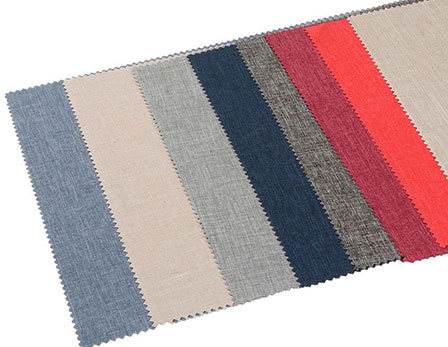

PVC fabric is a versatile and durable material that finds extensive use in various industries. Whether it's for construction, signage, or protective gear, PVC fabric offers outstanding qualities that make it an excellent choice. In this blog post, we will delve into the applications, benefits, and frequently asked questions about PVC fabric. By the end, you'll have a comprehensive understanding of why PVC fabric is a valuable addition to your projects.
PVC fabric plays a crucial role in construction projects. It is widely used as a weather-resistant cover for scaffolding, offering protection from the elements and enhancing safety. Its waterproof nature ensures that the structure remains dry, preventing potential damage and prolonging its lifespan.
In the world of advertising, PVC fabric is a popular choice for banners, billboards, and signage. Its vibrant colors, flexibility, and ease of printing make it an ideal medium to showcase messages and promote brands effectively. Additionally, its UV resistance ensures that the graphics remain sharp and vivid, even under prolonged exposure to sunlight.
PVC fabric is highly valued for its protective qualities. It is commonly used in the manufacturing of protective clothing, such as raincoats, aprons, and gloves. Its ability to repel water, oil, and chemicals, combined with its durability, makes it an essential material for safeguarding workers in various industries.
Durability: PVC fabric is known for its exceptional durability, with the ability to withstand harsh weather conditions, UV exposure, and heavy usage.
Waterproof: Its inherent waterproof nature ensures that structures and objects remain protected from moisture, preventing damage and corrosion.
Versatility: PVC fabric can be customized to meet specific requirements, such as thickness, color, and texture, making it adaptable to a wide range of applications.
Low Maintenance: With its easy-to-clean surface, PVC fabric requires minimal maintenance, saving time and effort in the long run.
Cost-Effective: PVC fabric offers an excellent value proposition, as it is relatively affordable compared to other materials while still maintaining high quality and performance.
PVC fabric is not inherently eco-friendly as it is made from petroleum-based products. However, advancements in manufacturing processes have led to the development of more sustainable and recyclable options.
Absolutely! PVC fabric's weather-resistant properties make it an excellent choice for outdoor applications, providing protection against rain, wind, and UV rays.
The lifespan of PVC fabric varies depending on factors such as usage, environmental conditions, and maintenance. However, with proper care, it can last for several years.
Conclusion:
PVC fabric's versatility, durability, and wide-ranging applications make it an indispensable material in various industries. From construction projects to advertising and protective gear, PVC fabric offers exceptional performance and value. Understanding its benefits and applications empowers you to make informed decisions when incorporating PVC fabric into your projects. Embrace the versatility of PVC fabric and witness the transformative impact it can have on your next endeavor.